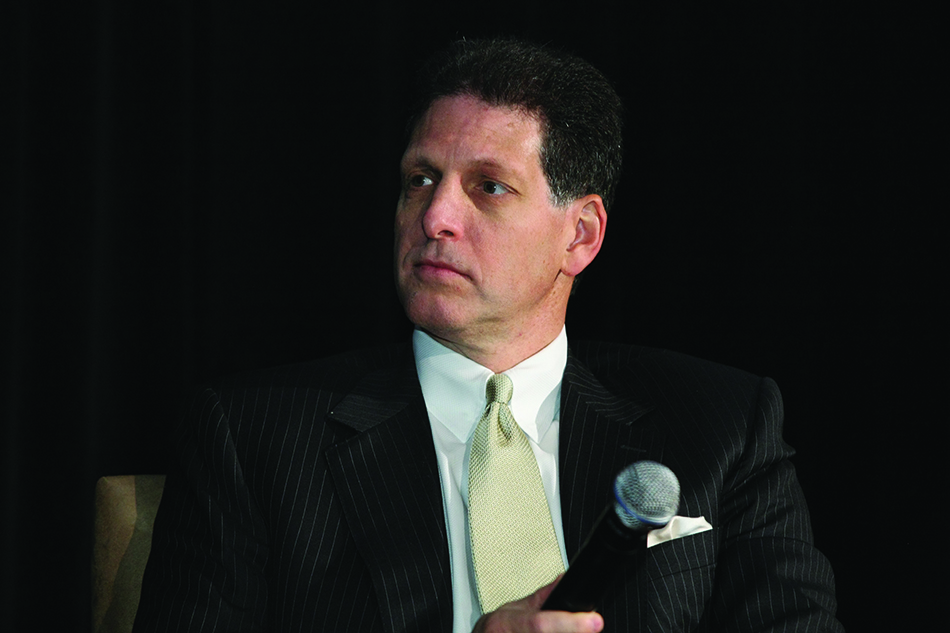Analyst Asks If Cable Is a Good Business and the Answer Doesn’t Mention TV
Craig Moffett says bearish investors are concerned about broadband capex, but overlooking wireless

The smarter way to stay on top of the multichannel video marketplace. Sign up below.
You are now subscribed
Your newsletter sign-up was successful
Top cable industry analyst Craig Moffett issued a Monday morning report with a provocative title, asking, “Is cable a good business?”
Clearly, MoffettNathanson’s principal and senior analyst believes Wall Street doesn’t think so. He also thinks sentiment will come around at some point in the future. But bull or bear, the future of cable TV, cord-cutting and retransmission-consent fees doesn’t seem to matter much. Moffett barely mentions them.
Instead, the future of the cable business lies in how much it will cost to upgrade broadband service, whether that expands the customer base and how much revenue each customer generates.
Also: Our Bold Prediction - A Major Cable Company Will (Finally) Get Out of Cable TV in 2023
The other key revolves around cable’s wireless business, which Moffett, unlike most investors, thinks will be a long-term money maker.
In his report, Moffett points out that when Charter Communications announced its capital spending plans last week, all of the major publicly traded cable stocks fell, even though Charter’s news was that its spending would be less than Wall Street had expected.
Investors are also concerned about the threat that fixed wireless presents to cable broadband, Moffett said.
The smarter way to stay on top of the multichannel video marketplace. Sign up below.
Longer term, the bigger threat to cable broadband is likely fiber rather than fixed wireless, Moffett said. But even with that, the analyst seems to be less concerned that cable operators will overspend on fiber or that overbuilders will present more competition.
On the other hand, Moffett thinks investors are undervaluing cable’s wireless business.
“As it happens, the capital markets do appear to largely ignore Cable wireless,“ he said. “Yes, the subscriber numbers are impressive … but it will never make money, the thinking goes, so it can be largely ignored.”
Moffett instead argues that cable will win the convergence wars.
“Cable operators have a smaller, but still significant, cost advantage in offering wireless services that can offload at least some of their traffic onto existing infrastructure,“ he said. ”And unlike wireless operators offering FWA, their capacity to do so is unlimited.”
In summary, Moffett said: “The prevailing narratives for Cable this year have shifted, and shifted, and shifted again, but they have all been alike in their persistent bearishness. First it was broadband net additions. Then it was the fear of higher capex. Then it was broadband ARPU. Now it is higher capex (again). The simple truth is that sentiment remains very negative. It’s hard to say precisely when it will lift … but we do think it will lift. The competitive threats to Cable’s broadband franchise are overstated, in our view, and the upside from Cable’s growth engine in wireless is, in our view, still undervalued.”
In terms of in individual cable companies, Moffett rates Comcast “outperform” with a target price of $46; Charter “outperform” with a target price of $582; Altice USA “market perform” with a price target of $5 and Cable One “market perform” with a target price of $740. ■
Jon has been business editor of Broadcasting+Cable since 2010. He focuses on revenue-generating activities, including advertising and distribution, as well as executive intrigue and merger and acquisition activity. Just about any story is fair game, if a dollar sign can make its way into the article. Before B+C, Jon covered the industry for TVWeek, Cable World, Electronic Media, Advertising Age and The New York Post. A native New Yorker, Jon is hiding in plain sight in the suburbs of Chicago.

